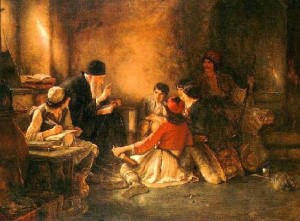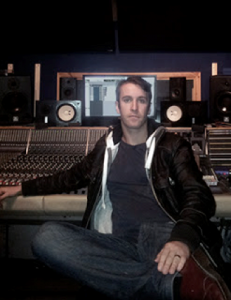BY DUNCAN WILLIAMS
I should warn you, dear reader, that the next few paragraphs might enrage you. I hope that at the least they might galvanize some opinions, and I don’t expect them all to be positive. Some of what follows is deliberately controversial. So, with the caveat emptor out of the way, let us begin.

Medical sciences have consistently advanced their research practice by reporting on both successes and failures (see, for instance, Melander et al, 2003; Mancini and Schulzer, 1999; Pocock et al, 1987). In this context, it is easy to see why this would be important: it is just as useful to know if a potential treatment was unsuccessful as it would be to know whether the treatment was partially or wholly successful. Beyond the scientific tenet of research repeatability, this has practical implications in terms of the amount of work required and in furthering the body of knowledge.
Engineering is also, if not universally, beginning to report on failure as well, although there has historically been a tendency not to report failure in order to satisfy funding bodies – can you imagine telling your sponsor that their money had been wasted and that the bridge you have been paid to build had simply collapsed? (See, for example, Larsen and Myers, 1999; Hollnagel et al, 2008; Coit and Dey, 1999.)
But in the Arts, I think I could count the number of times a researcher/practitioner has described their output as failure on the fingers of one hand (and that’s a pretty optimistic estimate, too). Why would this be so difficult for us to acknowledge? Perhaps, in the sciences, the criteria for success and failure are simply more concrete? Why should this not be the case in the arts?
Most students who come to us to study the Arts do so with the ultimate intention turning their passion into a living (a source of income). Surely this gives us the vocational mechanism for evaluating success or failure. Simply put: would an audience pay for this?
A preserve of the arts education and research field is that often times more challenging and creative work can be fostered by the academic environment than would otherwise be achieved in the commercial art world; in other words, artistic research and creative practice which simply would not “sell” (or perhaps sell with sufficient monetary return to fund the artists’ living costs).
Naturally this offers the academic involved in arts and creative practice an unusual amount of freedom which might not be afforded to a commercial practitioner, and the ability to try new things. Why then are these new things never reported as failures? Is this because of the lack of a rigorous way of evaluating success and failure in the production of challenging new art? Is it because the process in and of itself is the success?
And moreover, if we are involved in this free creative process as research, and our own teaching is research-informed (i.e. informed by this practice), then are we teaching our own students the right thing (which, for many students undertaking graduate-level study, is to develop the ability to make a living from their chosen discipline)? Are we teaching our students to fail, commercially? And should we ourselves learn how to fail academically?
I have composed music in the commercial arena for many years, including sound for picture briefs for three of the major music publishers on the world stage, yet most of the skills required for this work were not taught to me as part of my own university studies in music, nor would I expect them to make up part of the curriculum for a current student undertaking composition as a discipline at undergraduate level.
Is this the wrong approach? The skills required are mainly simplistic, and do not involve any particularly novel creative processes: simple time signatures, popular timbres, well known melodic and harmonic cues, combining according to traditional structures as demanded by the commissioner (generally a television show, occasionally videogame or short film director).
These techniques are more or less the opposite of what one might expect in an academic publication documenting a new piece of research-driven composition work, or something which might make up part of a REF portfolio submission. I propose that at the research level we might in the Arts take heed of the process in engineering and medicine in beginning to acknowledge failure as well as success.
Yes, there is an additional challenge when doing this in the Arts, as there is a failure on both an artistic level (which might constitute much of the commercial composition work I mention above), and on the vocational level if we are offering arts-based training to our students: how many of our own creative works would actually keep the wolf from the door in the real-world?
My hypothesis is that by doing this, a more honest dialogue might be achieved, and a real discourse between research-informed teaching and the commercial boundaries incumbent on the arts industry – and most importantly of all, the students who come to us to train as future practitioners within that industry – might begin.
Dr Duncan Williams is a Research Fellow in Music with Artificial Intelligence, working on a 4.5 year EPSRC funded project in the Interdisciplinary Centre for Computer Music Research (ICCMR), Plymouth University, in collaboration with the Brain-Embodiment Laboratory at Reading University. He is a fellow of the Higher Education Academy and, in 2016, was nominated for an award in the category “Inspirational Teaching” by students at Plymouth (UPSU SSTAR awards); he didn’t win. His research blog is hosted at www.duncanwilliams.info


